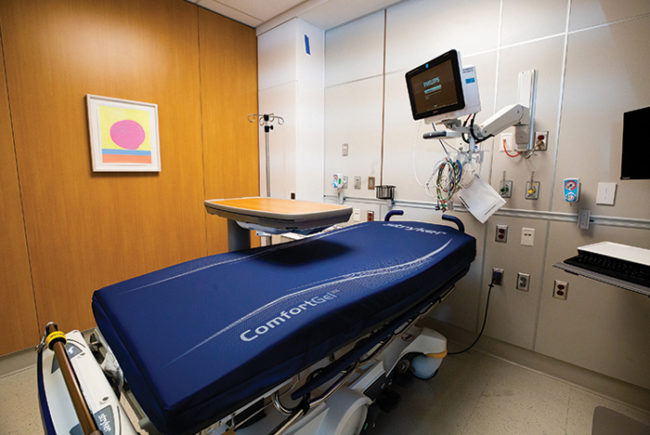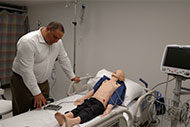The Penn Medicine Center for Health Care Innovation, Philadelphia, was named the winner of ECRI Institute's 11th Health Devices Achievement Award in May.
The organization was honored for its development of a technology platform for creating customized apps that prompt care providers when actions are required for targeted clinical populations.
The project addressed the challenge of identifying patients who require a particular intervention, using real-time data from multiple electronic health record (EHR) and clinical data sources. Then the information is processed, formatted and communicated to the patient’s care provider, either through a secure text or email or via a dashboard that the provider can access.
The result was an innovative dashboard and alert platform called Agent, an application that can be used by Penn Medicine providers to address specific clinical information needs.
“We hear from many hospitals that are searching for ways to get key clinical data from multiple IT [information technology] systems to support decision-making, and Penn Medicine has created a system that does it well,” says David Jamison, executive director, health technology evaluation and safety, ECRI Institute.
“The innovative approach Penn Medicine took to identify patient need is a good example for hospitals nationwide," he says.
Examples of use of the technology so far include:
• Preventing missed doses of critical medications due to an expiring order.
• Improving compliance with conducting extubation risk screens for intubated patients.
• Managing, in real time, patients with a history of high emergency department utilization so that the patients can receive targeted services, including mental health access or transportation vouchers,
With the technology, providers are alerted by text or email when an intervention is required or they can manage tasks collaboratively using a shared dashboard. By bringing to clinical teams relevant, timely data that previously was not easily accessible, the Agent platform helps care providers to make better use of these data to improve patient care.
Keys to the success of the program include:
• Collaborating with clinical champions to help define use cases.
• Working closely with the information services department to build custom application program interfaces that provide access to real-time data from multiple EHR and clinical data sources.
• Using an agile, rapid-iteration design approach, in which clinician feedback is used to adjust app designs during development.
"We understand the importance of helping health care providers know when action is needed for patients they are responsible for, and this platform makes that possible," said Katherine Choi, M.D., clinical innovation manager at the Center for Health Care Innovation.
"This platform allows us to continually make improvements to the applications, be sensitive to clinical workflow, and meet the needs of our patients," says Yevgeniy Gitelman, M.D., clinical informatics manager and a developer on the team.
“If clinicians need to know when a specific action is required for a targeted patient population, we can quickly and efficiently add applications to test new interventions, using the infrastructure we’ve put in place,” he adds.
ECRI Institute presents the Health Devices Achievement Award to recognize innovative and effective initiatives undertaken by member health care institutions to improve patient safety, reduce costs or otherwise facilitate better strategic management of health technology.
For more information about this award or membership in ECRI Institute's medical technology procurement and management programs, email clientservices@ecri.org.





